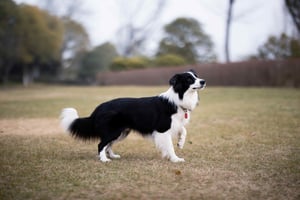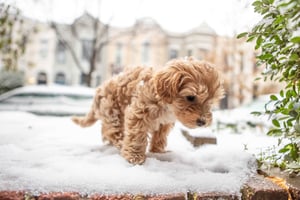Training your puppy is an important part of responsible pet ownership. A 6 week puppy training...
The Perfect Puppy Schedule to Have a Well-Rounded Dog
Owning a puppy is a lot of work, and one of the most important steps in raising a well-rounded pup is to create a good schedule. A good puppy schedule should include a mix of playtime, exercise, rest, and training time. With the right balance of activities, your puppy will be able to grow into a happy and healthy dog.
Creating a Schedule
Creating a puppy schedule starts with understanding your pup’s needs. Puppies are full of energy and need regular exercise and playtime. They also need plenty of rest and a good routine to help with potty training and other behavioural issues. Make sure to include a mix of activities in your puppy’s schedule for the best results.
In the beginning, you should aim for a simple schedule that is easy to follow. Start with the basics such as meal times, playtime, and potty breaks. Once you’ve established a good routine, you can start to add more activities like training and socialisation.
Playtime
Playtime is an important part of any puppy’s schedule. It helps to keep your pup active and can help with physical, mental, and emotional development. Playtime should include a mix of physical activities such as fetch, tug-of-war, and walking, as well as mental activities such as hide and seek.
Playtime should be scheduled at least twice a day, but more often is better. As your puppy grows, you can add more playtime activities to the schedule.
Exercise
Exercise is an important part of any good puppy schedule. Regular physical activity helps keep your pup healthy and can also help with behaviour and training. Exercise should be scheduled at least once a day, and you can choose activities such as walking, jogging, or swimming.
Exercise should be tailored to your puppy’s age, breed, and energy level. When starting out, aim for short, low-intensity activities that your pup can handle. As your pup grows, you can add more challenging activities such as agility training.
Rest and Relaxation
Rest and relaxation are just as important as exercise and playtime. Puppies need plenty of rest to grow and develop, so make sure to include plenty of downtime in your pup’s schedule.
Rest should be scheduled at least once a day, and should include activities such as napping and quiet play. You can also include activities such as massage and gentle grooming to help your pup relax.
Training
Training is an important part of any good puppy schedule. Training helps to teach your pup important behaviours and can help with socialisation. Training should be scheduled at least twice a week and should include activities such as basic obedience, potty training, and leash walking.
When starting out, aim for short, low-intensity training sessions that your pup can handle. As your pup grows, you can add more challenging activities such as agility training and trick training.
Socialisation
Socialisation is an important part of any good puppy schedule. Socialisation helps your pup learn how to interact with other people and animals. Socialisation should be scheduled at least twice a week and should include activities such as playdates with other pups, visits to the dog park, and walks in the neighbourhood.
When starting out, aim for short, low-intensity socialisation sessions that your pup can handle. As your pup grows, you can add more challenging activities such as attending doggy day care or puppy classes.
Conclusion
Creating a good puppy schedule is essential for raising a well-rounded pup. A good puppy schedule should include a mix of activities such as playtime, exercise, rest, training, and socialisation. With the right balance of activities, your pup will be able to grow into a happy and healthy dog.



